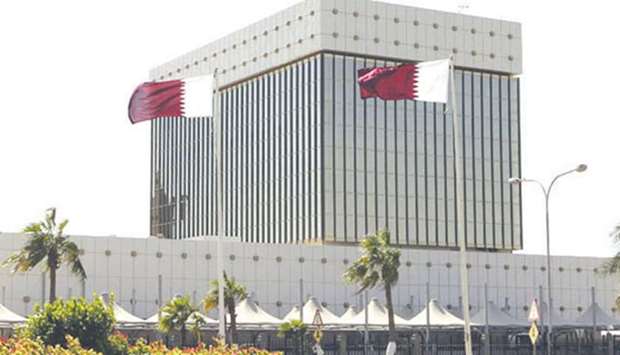The demand for electronic payments is expected to increase "substantially" during FIFA World Cup 2022, necessitating Doha to transform the retail payment infrastructure, according to the Qatar Central Bank (QCB).
The QCB also found that the share of ATM and cheque transactions to the total transactions processed by it has seen a "sharp" decline year-on-year and that it’s clearing and settlement system had comparatively less liquidity stress last year, the banking regulator said in its 2020 annual report, which was released on Thursday.
Highlighting that it has initiated a project for transforming the retail payment infrastructure to cope with the increasing demand; the QCB said it aims at building a world-class system that facilitates a safe, secure and efficient payment ecosystem in Qatar.
The payment systems that handle the retail transactions among the banks within Qatar include ECCS or electronic cheque clearing system; QATCH that facilitates settlement of bulk direct credit and direct debit transactions; NAPS (national ATM and point of sale switch), the electronic payment gateway used for switching and settling of all local and the Gulf interbank debit card transactions as well as the mobile payment system.
These systems processed more than 99% of the payment transactions, the report said, observing that the ECCS, QATCH and NAPS processed close to 4mn, 8.8mn and 120.5mn transactions respectively in 2020.
"The transactions processed by NAPS fell by 2.3% as a result of the sharp decline in the ATM usage. At the same time, QATCH system has registered a growth of 21% over the previous year," it said.
The QCB report found that over the years, there has been a "considerable" increase in the use of electronic payment methods for retail transactions in Qatar and a decline in paper-based instruments such as cash and cheques.
The Covid-19 pandemic has further accelerated the shift to electronic payments as consumers and merchants have sought to reduce the usage of cash and cheque due to the health concerns on handling paper-based instruments.
The share of cheque and ATM transactions to the total transactions processed by the QCB has seen a sharp decline from 34% in 2019 to 29% in 2020, it said, finding that the shift has mostly taken place from ECCS to QATCH and ATM to POS/QPAY.
The seamless support extended by the financial institutions and the merchants in providing contactless card payments for in-store and online purchases to the consumers during the pandemic to avoid cash and contact with payment terminals also attributed to such large scale migration towards electronic payments.
The volume of E-commerce transactions made through QPAY channels of NAPS jumped from 2.8mn in 2019 to 7.1mn in 2020; indicating a strong growth in the country's E-commerce market, the annual report said.
On the wholesale payment system; the QCB report said during the year, RTGS handled QR2.17bn worth transactions, a decline of 14.4% year-on-year, mainly due to the reduced economic activities, particularly in the second quarter of the year, as an aftermath of the Covid-19 pandemic.
Regarding the settlement of transactions related to the central bank market operations, the value and volume of QMR deposits were much higher than those of QMR loans during the entire year, the QCB report said.
"Overall, the QMR deposits and loan transactions settled in the payment indicate that the banking system had adequate liquidity during the year," it said.
On the requirement of intraday credit (IDC) by the banks on a frequent basis, which indicates the liquidity stress on the payment system; the QCB said the daily average IDC provided to the banks remained "very low" compared to the total amount settled in the system for most of the days.
In total, in 2020, only 9.2% of the payments were settled using IDC against 11.5% in the previous year, it said.
Finding that in 2020, banks availed net IDC only in 1,063 occasions compared to 1,616 a year ago; the QCB said "this points that the clearing and settlement system had comparatively less liquidity stress during the year," it said.


